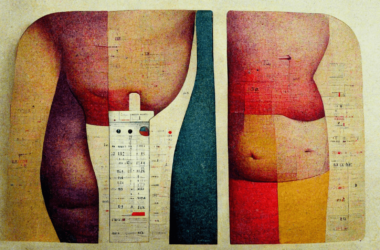In July 2016, Newt Gingrich offered a prime example of cognitive dissonance in a CNN interview. Gingrich argued that statistics showing declining crime rates were wrong because people didn’t say that they felt safer. His argument demonstrated the strong role that feelings play in the way people determine which data and arguments they choose to believe. The term “alternative facts” was first introduced by Kellyanne Conway in an interview on NBC’s Meet the Press on Jan. 22, where she defended inflated inauguration attendance numbers. Gingrich’s and Conway’s interviews can help reveal the thought process behind why so many people believe blatant falsehoods. If President Trump’s supporters truly think that the large crowd size is correct and don’t consider themselves to be safe despite crime statistics, no manner of reasonable arguments based on data will convince them otherwise.
Dr. Donald Taylor, a McGill professor in the Department of Psychology, explained that people are inherently biased, rather than logical. Taylor pointed out that this isn’t a novel insight and, furthermore, that peoples’ biases can be anticipated.
“People will bias their interpretation of events […] in a fairly predictable way,” Taylor said. “[They will] bias towards it fitting with what they already believe or making [themselves] look good.”
Due to the level of subjectivity involved, this pattern is especially pervasive when one makes ethical or policy judgements. The subjective domain depends on other people and a social consensus, leaving substantial room for biases to produce alternative analyses. According to Taylor, the larger societies become and the more interests and complexities there are to balance, the easier it is for biases to take over decision-making.
“I have a sense [that] the more complex life becomes […] the bigger this social reality is, the harder it is to force people out of their biases,” Taylor said. “When you’ve got information overload, you’re just paralyzed and then that just makes it easier to put your own spin on [information]."
In the age of digital media, there is a never-ending flow of information available, making it impossible to digest it all.
When extended to a democratic process as complicated as the American system, the subjectivity of some truths lends itself to alternative facts that fit peoples’ narratives better—especially when there is a demagogue who plays into peoples’ fears, prejudices, and mistrust of government for his own cynical purposes. The level of complexity of the relationship between terrorism and immigration, combined with institutional distrust, lends itself to people feeling unsafe and accepting falsehoods that justify those fears. For example, in a recent survey by Public Policy Polling a majority of Trump voters cited the fake “Bowling Green Massacre” as a justification for the travel ban.
There is the troubling issue of whether it is even worthwhile to fact-check Trump if the facts produced are unconvincing to his voters. Acting Chair of McGill’s Department of Economics Dr. William Watson would argue it is. He remains confident in the ability of data to reflect real life conditions: The issue is choosing the right data.
“I don’t think we should give up [trying to] figure out what the facts really are, even as we recognize that some facts are hard to establish and that there can be debate on what the facts really are,” Watson said. “It’s not inconsistent that U.S. GDP might be going up, but people in Pennsylvania […] are having a lousy time, but I suspect the state GDP and income numbers will show that. So, I wouldn't despair of those numbers.”
It is very troubling that the White House is now giving a platform for vitriol masquerading as news from online sources, including Steve Bannon’s Breitbart and Alex Jones’ InfoWars. As Watson explained, Trump should not discourage anyone from finding the truth. Likewise, the news media and Democrats should not trick themselves into thinking that fact-checking is diminishing Trump’s cult of personality. Polls show that, among Republicans, Trump’s approval numbers are consistent with historical trends for other presidents among their supporters. The inconvenient fact remains: Parts of Trump’s narrative, however false, are relatable and mesh with his supporters’ worldview, and no amount of fact-checking will change that.









